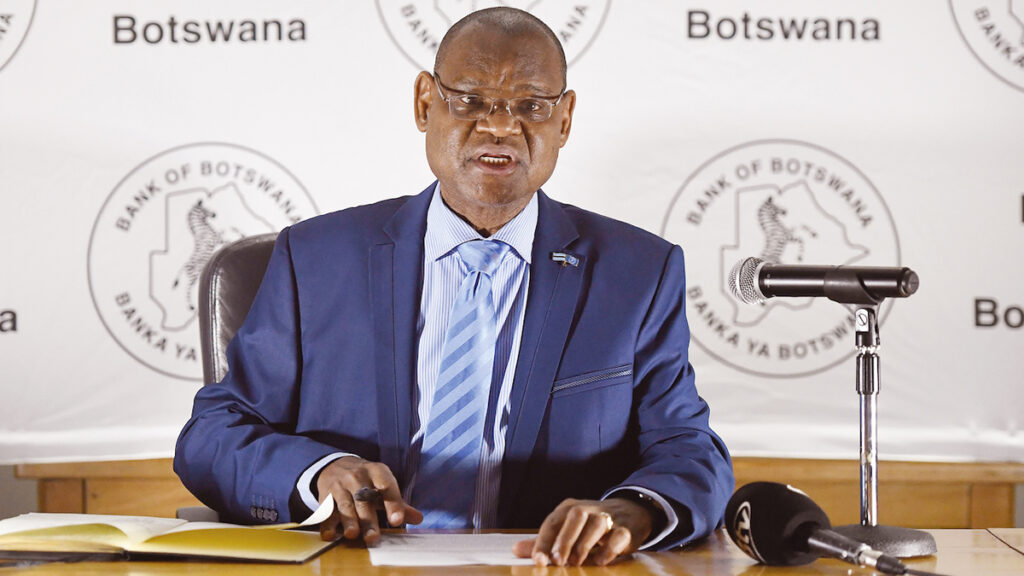- Govt adjusts VAT to 14% from 12%
- BoB cautions of high inflation risks
- Economy to grow by 8.8% in 2021
BAKANG TIRO
editors@thepatriot.co.bw
The central bank, Bank of Botswana (BoB), forecasts that government’s decision to increase the Value Added Tax (VAT) from 12% to 14% will increase inflationary pressure by 1.44% in Q2 of 2020.
Statistics Botswana’s (SB) Consumer Index Data showed that inflation increased from 2.2% in December 2020 to 2.3% in January 2021, representing 0.1% growth amid a trembling economy.
But, BoB says inflation is forecast to revert to within the objective range in second quarter of 2021.
This, according to BoB, is as a result of taking into account the expected increase in the domestic demand in response to the accommodative monetary conditions such as the increase in VAT.
Bank Governor Mose Pelaelo while presenting bank’s Monetary Policy Committee (MPC) decision on Thursday said the risks to the inflation outlook are assessed to be balanced.
“Upside risks relate to the potential increase in international commodity prices beyond current forecasts, aggressive action by governments and major central banks to bolster demand as well as the anticipated supply constraints due to travel restrictions and lockdowns, though abating,” he said.
Domestically, Pelaelo said accelerated implementation of the Economic Recovery and Transformation Plan (ERTP) or additional rise in government levies and taxes could lead to higher inflation.
“These risks are moderated by weak domestic and global economic activity, which could be exacerbated by the periodic lockdowns and other forms of restrictions due to emergence of new COVID-19 variants and the possible decline in international commodity prices,’’ he added.
Furthermore, BoB cautions that implementation capacity constraints could hinder the effectiveness of policy stimulus and ERTP initiatives, thus resulting in lower inflation.
The Ministry of Finance and Economic Development and the International Monetary Fund (IMF) projected a sharp deterioration of economic growth for Botswana by 7.7% in 2020, compared to the earlier contraction of 8.9% before rebounding to significant growth of 8.8% in year 2021.
The IMF forecasts the domestic economy to contract by 9.6 percent in 2020 compared to the decline of 5.4 percent in the April 2020 World Economic Outlook, before rebounding to a growth of 8.6% in 2021.
But BoB says that even with recovery projected in 2021, the contraction in 2020 equates to more than a year’s loss of output growth.
“Economic activity in South Africa also remains subdued and the South African Reserve Bank projects GDP to have contracted by 7.1 percent in 2020, but to rebound to the growth of 3.6 percent in 2021. Global output is estimated to have declined by 3.5 percent in 2020 but to also rebound to a growth of 5.5 percent in 2021, on account of expectations of a vaccine-powered strengthening of activity and additional policy support in major economies,” Pelaelo buttressed. Meanwhile, Bank of Botswana decided to maintain the Bank Rate at 3.75 percent again.
